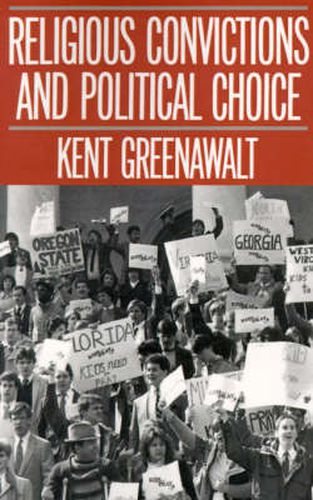Religious Convictions and Political Choice
Kent Greenawalt (Benjamin N. Cardozo Professor of Jurisprudence, Benjamin N. Cardozo Professor of Jurisprudence, Columbia University Law School)

Religious Convictions and Political Choice
Kent Greenawalt (Benjamin N. Cardozo Professor of Jurisprudence, Benjamin N. Cardozo Professor of Jurisprudence, Columbia University Law School)
How far may Americans properly rely on their religious beliefs when they make and defend political decisions? For example, are ordinary citizens or legislators doing something wrong when they consciously allow their decisions respecting abortion laws to be determined by their religious views? Despite its intense contemporary relevance, the full dimensions of this issue have until now not been thoroughly examined. Religious Convictions and Political Choice represents the first attempt to fill this gap. Beginning with an account of the basic premises of our liberal democracy, Greenawalt moves to a comparison between rational secular grounds of decision and grounds based on religious convictions. He discusses particular issues such as animal rights and abortion, showing how religious convictions can bear on an individual’s decisions about them, and inquires whether reliance on such convictions is compatible with liberal democratic premises. In conclusion, he argues that citizens cannot be expected to rely exclusively on rational, secular grounds.
This item is not currently in-stock. It can be ordered online and is expected to ship in approx 2 weeks
Our stock data is updated periodically, and availability may change throughout the day for in-demand items. Please call the relevant shop for the most current stock information. Prices are subject to change without notice.
Sign in or become a Readings Member to add this title to a wishlist.


